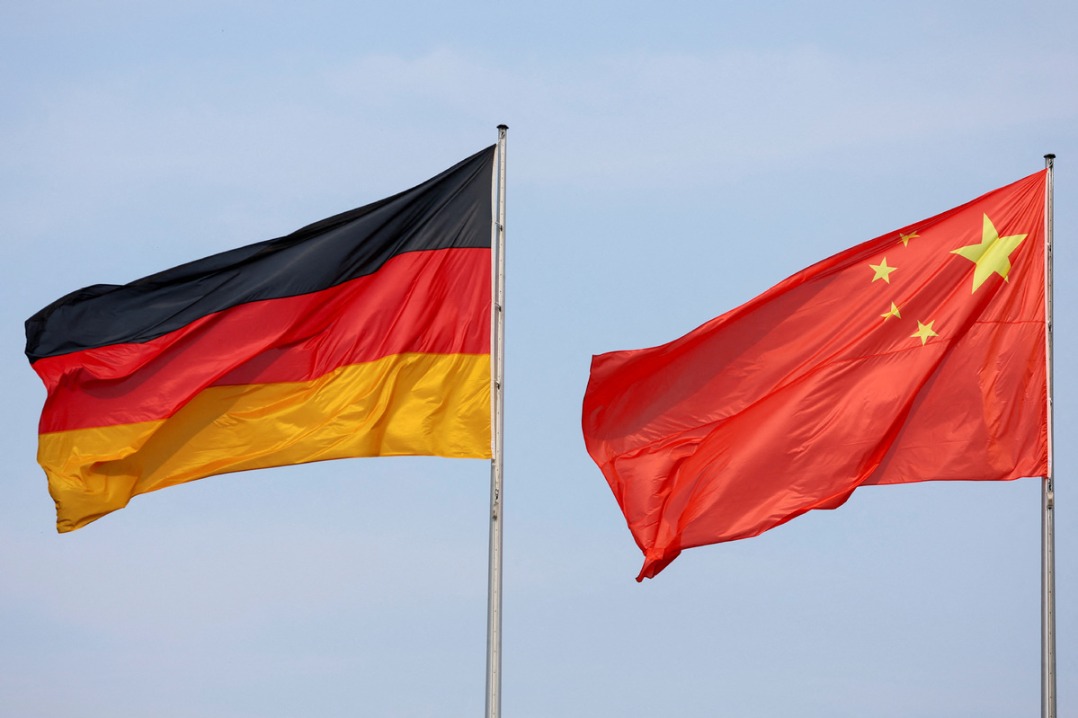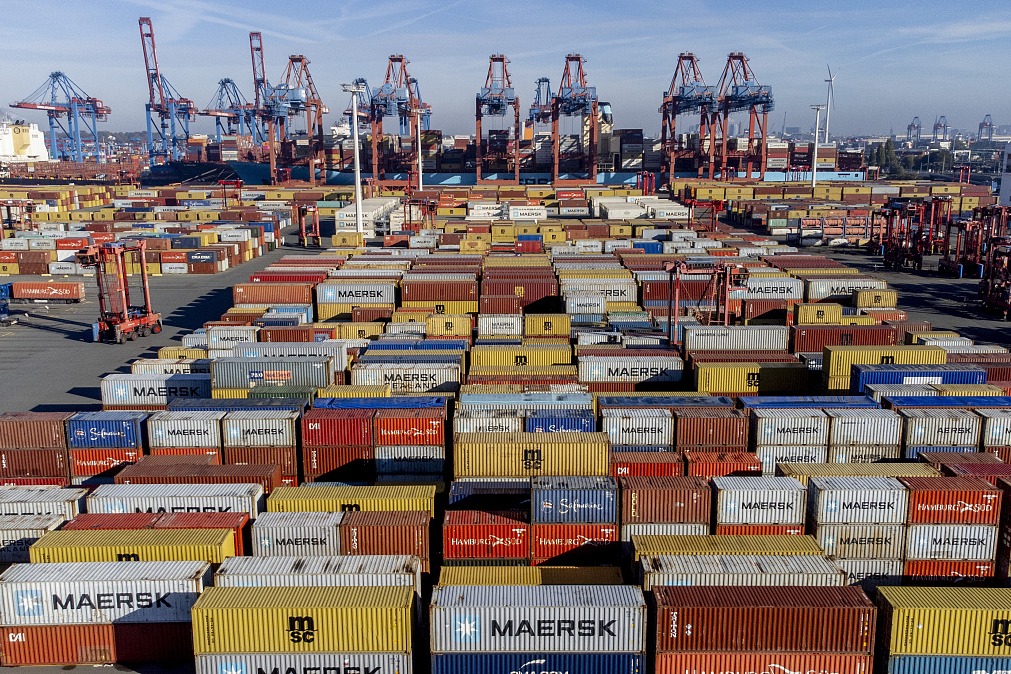Study in Jiangsu

The education in Jiangsu Province is among the top in China with many famous universities located in Nanjing, Xuzhou, Suzhou and Yangzhou City. Jiangsu Province has the third largest number of international students in China.
Nanjing University
Nanjing University, one of China`s key comprehensive universities under the direct supervision of the Ministry of Education, dates from 1902 when it was known as Sanjiang Normal School. During the following decades, it evolved as Liangjiang Normal School, Nanjing Higher Normal School, National Southeast University, the Fourth Zhongshan University, and National Central University. On August 8, 1949, National Central University was renamed National Nanjing University. In October 1950, as required by the Ministry of Education, the name was changed to Nanjing University (NJU). In 1952, due to the nationwide restructuring of colleges and universities, some academic units such as the School of Engineering and the School of Agriculture were separated from the university; meanwhile, it merged with the School of Liberal Arts and the School of Sciences of the University of Nanking founded in 1888. Its name remained while its campus moved from Sipailou to Gulou.
With its multi-disciplinary programs and distinguished faculty, NJU leads the institutions of higher learning in China. Statistics show that since 1992, the number of research papers by NJU faculty and students on the Science Citation Index (SCI) has ranked the first among universities in Mainland China for seven consecutive years. So did the number of the articles cited by international academic circles for eight years. In the past decade, NJU has won more than 800 national, ministerial and provincial awards, including over 40 National Awards of Natural Sciences, Awards of Science and Technology Progress, and Awards of Innovation. Since 2000, for instance, it has received 11 National Awards of Natural Science (one First Prize, ten Second Prizes) and two of Science and Technology Progress. From 1994 to the present, in terms of the number of the projects granted by the National Natural Sciences Fund and the National Social Sciences Fund, NJU has been among the top in the ranking of the Chinese universities.
NJU has made remarkable achievements in student education. Its current student body totals around 43,477 (12,655 undergraduates, 11,030 graduates). NJU students have been demonstrating their cutting-edge competitiveness in various competitions inside and outside of China. In 1994 and 1995, the NJU debating team won the championship in both the national and international debating contests; in 1996 and 2005, two championships were won in the International English Speech Contest in Britain. Students, when graduating from NJU, enjoy a wide popularity in the job market for their solid academic foundations and strong potentials for future development. In academics, NJU graduates have also achieved great success. So far, seven alumni were granted the US President`s Award, and some scientific findings were named after the individuals who once studied or worked at NJU (e.g., "Zhou-Gong: Distributing Mutual-Changes Theory," "Wu: Solidarity Theory," etc.). In 1999, NJU was the first comprehensive university whose undergraduate education was appraised by the Ministry of Education as excellent.
In addition to the excellence in teaching and research work, NJU is also known for its vigorous exchanges with the outside world. Starting from 1979, it has established academic links with more than 200 universities and research institutes in around 70 countries, and hosted over 120 international conferences. Nearly 2,500 faculty members have been abroad to pursue higher degrees or conduct research work, while over 1,800 international scholars have taught or lectured and more than 18,000 international students studied on NJU campus. Nobel Prize laureates such as Chen Ning Yang, Tsung Dao Lee, Chao Chung Ting, Ilya Prigogine, Sheldon Glashow, and Robert Mandel have been conferred Honorary Doctorates or Honorary Professorship, and large numbers of world famous statesmen, scientists, and social activists (e.g., former US President George Bush, former French President Francois Mitterrant, former Australian Prime Minister Robert Hawk, etc.) have visited here. NJU never ceased its efforts to explore possible modes of cooperation and to learn from international experiences in teaching, researching and management. Such efforts resulted in the founding of the Center for Chinese and American Studies (with the Johns Hopkins University, US), the Sino-German Institute for Law Studies (with Gottingen University, Germany), and the Lab of Multi-Media Distance Teaching System (with the Japanese Ministry of Tele-Communication). Regarded as "an overseas campus on the Chinese land," the Center for Chinese and American Studies has become a successful example of educational cooperation between China and the United States, and received much attention and acclamation from governments of both countries.
Southeast University
Southeast University (SEU) is one of the national key universities administered directly under the Central Government and the Ministry of Education of China. It is also one of the universities of Project 211 and Program 985 that is financed by the Central Government to build as a world-class university. Located in the ancient capital city of Nanjing, Southeast University has campuses such as Sipailou ,Jiulonghu and Dingjiaqiao, covering a total area of 447 hectares.
Southeast University is one of the oldest institutions of higher learning in China. Its origin can be traced back to 1902, when it was founded as Sanjiang Normal College. Then, it evolved as: Nanjing Higher Normal School, National Southeast University and National Central University. During the nationwide restructuring of institutions of higher learning in 1952, Nanjing Institute of Technology was established on the original site of National Central University. In May 1988, the university was renamed Southeast University. And in April 2000, Nanjing Railway Medical College, Nanjing College of Communications and Nanjing Geological School were merged into the university, whose main campus is located at the center of the ancient capital city of Nanjing, a sacred place for education since the Ming Dynasty.
The university now comprises 29 schools or departments with 75 undergraduate disciplines in all. It boasts 29 and 49 disciplines respectively authorized to confer Ph.D. degrees and master's degrees, 5 national key disciplines (comprising 15 sub-disciplines), 5 national key sub-disciplines, 1 national key (development) discipline, 11 disciplines in the development project for strong disciplines of universities based in Jiangsu Province, 14 provincial key disciplines and 28 post-doctoral research stations. It also boasts an array of key scientific research bases, including 3 national key laboratories, 3 national engineering research centers, 2 national research centers for engineering technology, 1 national professional laboratory, as well as 11 key laboratories and 5 engineering research centers granted by the Ministry of Education, etc..
Southeast University is among the ten pilot colleges and universities for the reform of higher engineering education co-initiated by the Ministry of Education and Chinese Academy of Engineering, and one of the first colleges and universities which is carrying out the "education and development plan for outstanding engineers" and the "national innovative experiment plan for undergraduates" under the Ministry of Education; it is also among the first pilot colleges and universities for the implementation of the "education and development plan for outstanding doctors" co-initiated by the Ministry of Education and the Ministry of Health, as well as one of the pilot schools for the reform of the development mode for top and innovative medical professionals and of the five-year development mode for clinical medical professionals.
Ever since it launched the "Project of State-funded Overseas Studying to Develop Top Universities" in 2007, the university has sent 805 postgraduate students abroad in total, 314 of who aim for their Ph.D. degrees. At the same time, it has been actively conducting academic exchanges with both domestic and international schools and organizations, and promoting cooperation in joint school running. For example, Southeast University-Monash University Joint Graduate School (Suzhou) co-built with Monash University of Australia, the first of its kind approved by the Ministry of Education, has had an enrollment of 218 students; the collaboration with University of Rennes 1 of France has blazed a trail for the cooperation in postgraduate development and scientific research. Currently, about 300 international students from various countries and region are studying in the university for their master's or doctor's degrees.
In addition to the excellence in research and student cultivation, Southeast University is also taking an active part in setting up international cooperative programs with other countries. Up to now, it has signed agreements for friendly cooperation with more than 100 universities, research institutes or corporations including Cambridge University, University of Maryland, Lehigh University, ETH Zürich, Tohoku University, Technical University of Munich, University of Ulm, Monash University in Australia, University of Rennes 1, etc., which has contributed a great deal to the actual strength, international fame and development of the university. There are 1389 international students from more than 100 countries studying in SEU, including 1021 degree students. We have also established 3 Confucius Institutes in America and The Republic of Belarus.
China Pharmaceutical University
China Pharmaceutical University(CPU), originally the National Pharmaceutical School founded in 1936, is China's first independent school of pharmacy and it has been one of the best universities of pharmacy in China with a wide variety of specialized areas. It is one of the "211 project" key universities affiliated to the Ministry of Education of China.
According to the 2008 statistics of the Ministry of Education of China, CPU's Pharmacy discipline ranks No. 1 and Traditional Chinese Pharmacy discipline ranks No. 3 among all Chinese universities.
The university spirit is "strict, practical, creative and cooperative." CPU graduates are devoted in serving the society, and enjoy a high reputation from employers and the society. The employment rate tops among the higher institutions in China, about 99.8% for undergraduates, 100% for post-graduates, and 99.33% for vocational school students. The rate fluctuates little to the economic environment.
CPU is located in Nanjing , the "ancient capital city of six dynasties" in China and is composed of two campuses including Xuanwumen campus located in downtown Nanjing and Jiangning campus in the southeast outskirt of Nanjing.
CPU consists of 6 schools (School of Pharmacy, School of Traditional Chinese Pharmacy, School of life science and Technology, School of International Pharmaceutical Business, School of Continuing Education, and School of Higher Vocational Education), 4 independent departments (Dept. of Basic Sciences, Dept. of Foreign Languages, Dept. of Social Sciences, and Dept. of Physical Education), and 5 key labs and centers at state or provincial levels.
Among the 530 faculty members, 2 are academicians (members of the Chinese Academy of Sciences and the Chinese Academy of Engineering), and more than 40% have advanced academic titles. So far, the university has undertaken more than 70 research projects financed by the State Key Programs Foundation, and more than 300 research projects financed by the State Natural Sciences Fundation and the State New Drug Research Foundation. There are also fundings from other national, provincial and municipal departments. Many projects have reached the international level and filled the gaps in the country's pharmaceutical field.
CPU offers 20 bachelor's degree programs, 29 master's programs, 24 doctoral programs and 6 post-doctoral fellowship programs. There are three national key disciplines: Pharmaceutical Chemistry , Pharmacognosy, Pharmaceutics and one provincial key discipline--Modern Traditional Chinese Pharmacy and Pharmacognosy.
Approved by the Ministry of Education, CPU established "Basic Pharmaceutical Science Rotation Class" and "National Bio-science and Technology Rotation Class". The Biological Technology Class is co-established with Nanjing University. The class has been recruiting students for 10 years and has cultivated a considerable number of high-quality talents. The class adopts a rolling system. Every year, about top 60% students are recommended for their master's and doctoral study.
At present, CPU has 12,852 full-time students, including 114 international students from more than 40 countries. CPU is the only institution that is authorized by the Ministry of Education to admit full-time pharmacy students, continuing education students and senior visiting scholars from overseas. It is also one of the higher educational institutions in the mainland for students from Hongkong, Macao and Taiwan.
The university is also active in international academic exchanges. It has made academic exchange agreements with more than 30 higher education institutions in different countries and regions of the world, including Japan, the United States, UK, Australia, Italy and Hong Kong. In addition, it maintains academic relationships with research institutions and universities in more than 40 countries and regions.
MOST POPULAR
- 1 Things to know about China Intl Consumer Products Expo 2024
- 2 China tops FDI confidence index of emerging markets
- 3 China specifies steps to improve payment services in tourist attractions
- 4 Low-altitude economy set to take off
- 5 China's immigration service platform receives over 10m calls from home, abroad
Editors' Picks
 Infographic:
A look at China's economy in Q1 of 2024
Infographic:
A look at China's economy in Q1 of 2024
 Infographic:
China to remove foreign ownership restrictions in value-added telecom services in pilot areas
Infographic:
China to remove foreign ownership restrictions in value-added telecom services in pilot areas
 Infographic:
2023 Sino-German investment and trade in numbers
Infographic:
2023 Sino-German investment and trade in numbers
 Infographic:
China-Germany relations in graphic
Infographic:
China-Germany relations in graphic



